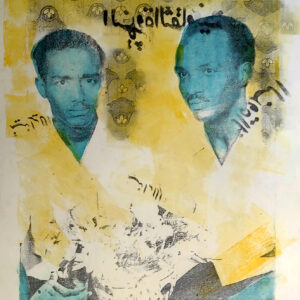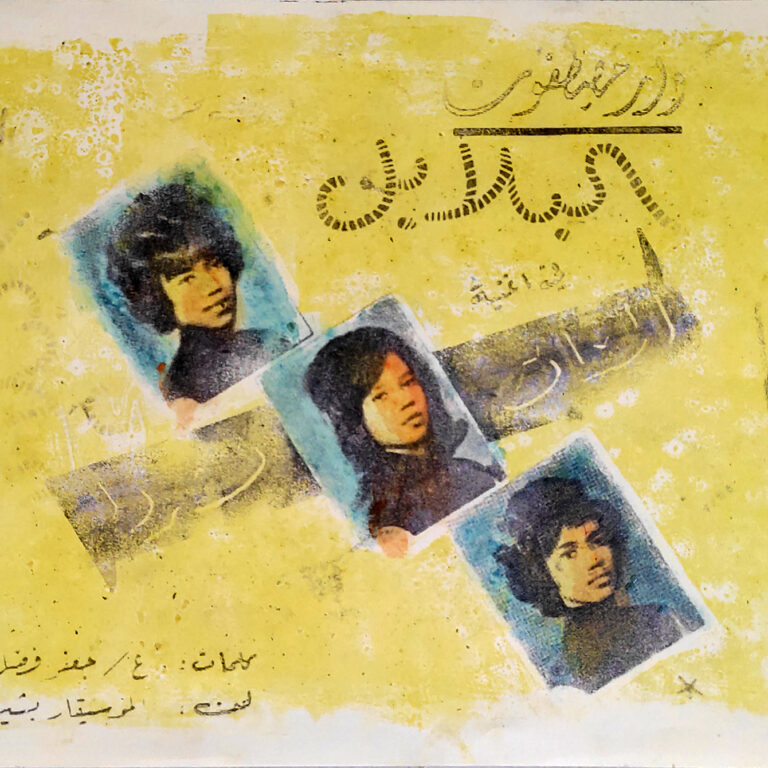The lack of discourse on the foundations of black identity in my childhood outside the family home paralleled the conventional views surrounding the Expats and Sudanese diaspora in Cairo, which naturally evoked a subtle sense of longing inside me that made itself prominent as my identity got progressively influenced by projections of black culture in general, and Sudanese culture in particular, found in my family home, Bab El-louk area, opera square, and Dar Al-Sudan
Home
Looking out the balcony of the family home, I was continuously greeted by an enchanting juxtaposition of the huge billboards of famous brands engulfing the small hand-painted signs of the local dry cleaner or baker. The images of Sednawy, Omar Efendi, and Nabolsi Shaheen shop signs were markers of the cosmopolitan Cairo that made our home feel like a Sudanese shrine decorated with old family pictures and postage stamps.
Bab El-louk area
Afro-American TV shows, like ‘The Fresh Prince of BelAir’ and ‘The Bill Cosby Show’, planted the seedlings of the black identity in young Amado’s mind. But as an adolescent, he wandered around Bab El-louk where his middle school was situated, till the neighboring streets of the American University’s old campus revealed an oasis filled with books, magazines, and cassette tapes that once belonged to the students of different cultural background that occupied the university’s dorms. These various forms of cultural expression familiarized Alfadni with how the African diaspora experience their identity individually and as a collective.
Opera Square
Among the noise and blaring lights of Cairo’s opera square, laid a small cassette tape shop that Amado frequented to get his fix of Sudanese culture. There he spent hours browsing through the various collections of music recorded in both Egypt and Sudan, and mirrored a diverse Sudan that was only made apparent to Alfadni through the-sometimes-Arabic-and-sometimes-western melodies. With no way to gauge the content of each tape, Alfadni found himself examining their unique covers as if gazing through a looking glass, and adding them to his self-made repository.
Dar Al-Sudan
Within the hallways of Dar Al-Sudan, a community center where individuals of the Sudanese community residing in Egypt spent nights chatting or bantering over a game of pool, Alfadni found himself roaming the different rooms and absorbing images of a Sudan he didn’t know existed. The library in particular offered him a vast registry of books and magazines conveying narratives placing figures from his homeland in the forefront.


















